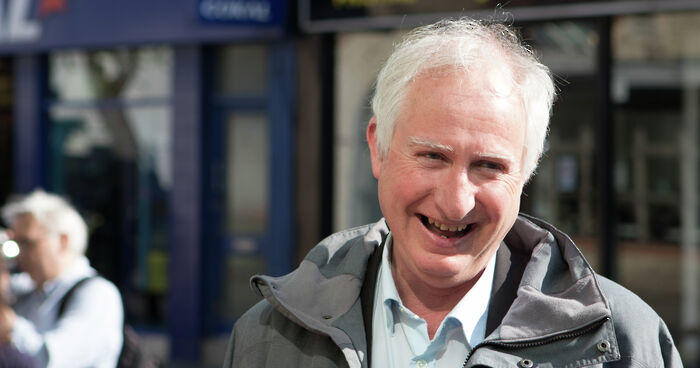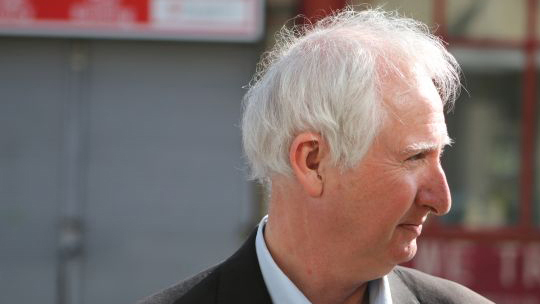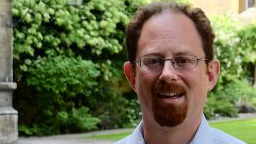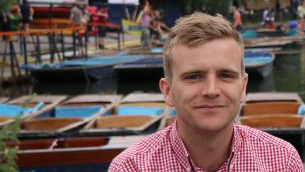
John Hayward: ‘I would be able to be that champion for Cambridge’
Joel Nelson speaks to the Conservative candidate for Cambridge on Brexit, the Labour Party, his chances and his hopes for the future
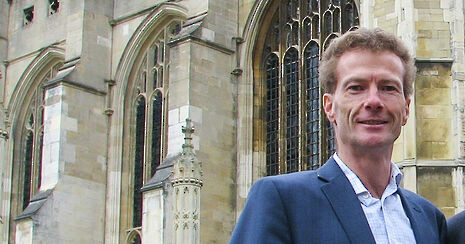
Dr John Hayward, the Conservative candidate for Cambridge, bears little resemblance to any Conservative MP that I have met before. His background is a mixture of the usual and the decidedly unusual: he studied at the University of Cambridge but read Genetics before working in international development and has worked in the former Soviet Union, for Cambridge-based charities and for the Conservative Party’s Policy Form. He refers to himself throughout our discussion as “Theresa May’s candidate”.
I meet him in Downing, just before he is due to appear at one of Cambridge’s many hustings and, as we walk into the main court, he talks animatedly about his time at Cambridge before I hit him with my big question, the question I am most interested to have answered: why is his party so viscerally unpopular with students?
Before meeting Hayward I had scrolled through my newsfeed and was struck by the number of expletive-filled vitriolic posts recommending that the reader should vote Labour (unless they are a monster, in which case the Tories are for them). I want to know why the party is regarded in these terms. I thought that this was a tough question but it doesn’t throw Hayward at all. He recognises the problem for the Party, telling me of supporters who are nervous of displaying Conservative posts for fear of vandalism (“it’s low level intimidation,” he explains), before reflecting upon the shift of the centre ground of politics, expounding upon his passion for social justice and noting the need for any politician to have a thick skin.
If this is a Brexit election then Hayward’s pitch is clear: “How do we ensure that the voices of the 74% [who voted Remain] as well as 26% aren’t ignored, aren’t forgotten, aren’t overlooked?” he asks. “The only way that will happen is if we have a strong voice for Cambridge in Westminster who is championing our concerns, who is saying ‘the universities, the hospitals, the high tech industries are concerned about their ability to continue to attract foreign students, foreign academics, foreign nurses and doctors upon which the NHS depends and the foreign high skilled work force on which Silicon Fen so depends’”.
“I’ve been working with government very closely, with the PM’s policy board for the past year. I’ve already got their ear, as it were”
John Hayward
“So,” he continues, “we need someone who is able to intelligently express those concerns to government. I’ve been working with government very closely, with the PM’s policy board for the past year. I’ve already got their ear, as it were. I’ve already got influence in ministerial circles and so I would be able to be that champion for Cambridge.
“Crucially,” he tells me, “in contrast to the other two ex-MPS, they are both, indeed all the other candidates, are saying they will fight Brexit until kingdom come or in this case until Brexit comes. Rather than saying ‘we are where we are, we need to get a good deal for Cambridge and the rest of the country and for the world’”.
With regards to Brexit he tells me that “there are vast opportunities as well as risks.”
There’s nothing amateurish about Hayward; indeed I am struck by his professionalism. He speaks quickly and, in a gift to a journalist, in complete sentences. He has a doctorate from Cambridge and it shows. There is something of the don about him, at times our conversation felt akin to a supervision. He is an impressive interlocutor who vigilantly stays on message throughout our conversation, faithfully arguing the Conservative Party line in a way that gives an unexpected freshness to the need for ‘strong and stable leadership’. Throughout our conversation he produces quotes, statistics, anecdotes and blocks of evidence to support his points as he freely details both the Conservative Party’s record and his hopes for his chances.
He has little time for Jeremy Corbyn, telling me that the Labour leader is “backed by twelve Communist and Marxist organisations. They are on record as saying ‘this is our opportunity. This is the moment in our lifetime we have been waiting for to transform society and take it back to the 70s if not the Russian 1920s. Labour’s veered off to the far left’”.
He tells me of his friends in the former Soviet Union who cannot understand how the British people could consider voting for such a figure or such a manifesto.
He does, though, see the benefits that Corbyn can bring the Conservatives. When I ask him how he fancies his chances he responds that “had you asked me before the election was called I would have said ‘Cambridge voted 74% remain so Lib Dems are going to campaign on the anti-Brexit position and they’ll almost certainly take it from Labour’. Now that we’re actually knocking on doors and talking to voters we’re consistently finding that’s not the case. I’m finding a lot of Labour voters and I would guess somewhere between 10 and 25% of people who were previously Labour voters now saying ‘I cannot vote for Corbyn, I’m going to vote for Theresa May’”.
His concern for people’s welfare and enthusiasm for social justice are highlighted by his comment that the Conservatives have “been able to relieve and prevent poverty for a million people in the last seven years. I recognise that a place like Cambridge still has issues to be dealt with on that but I am pleased that, in the manifesto, there is a commitment to halve homelessness in five years and ultimately if possible to see it eradicated altogether beyond that”.
He has “knocked on dozen of doors where the response has been ‘I have voted Labour all my life, can’t stand Corbyn, I’m going to vote Theresa May’. We’ll see in a week’s time how much that actually does translate into me winning here but it is a significant response on the doorstep”. He seems cautiously optimistic as we part and he departs for the hustings
Meet the candidates
 Interviews / Lord Leggatt on becoming a Supreme Court Justice21 January 2026
Interviews / Lord Leggatt on becoming a Supreme Court Justice21 January 2026 Features / Are you more yourself at Cambridge or away from it? 27 January 2026
Features / Are you more yourself at Cambridge or away from it? 27 January 2026 News / Reform candidate retracts claim of being Cambridge alum 26 January 2026
News / Reform candidate retracts claim of being Cambridge alum 26 January 2026 News / Report suggests Cambridge the hardest place to get a first in the country23 January 2026
News / Report suggests Cambridge the hardest place to get a first in the country23 January 2026 News / Cambridge psychologist to co-lead study on the impact of social media on adolescent mental health26 January 2026
News / Cambridge psychologist to co-lead study on the impact of social media on adolescent mental health26 January 2026

